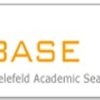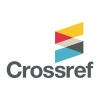Analisis germane load dilihat dari minat belajar dan gaya belajar matematika siswa SMP di kelas virtual
Abstract
The purpose of this study was to describe the Germane load judging from learning interest and learning styles of Senior High School in Virtual Class. This research will be implemented at SMPN 29 Tangerang City with a population of all class VIII students and the sample in this study is one class from class VIII in the 2020/2021 school year. The material is a two-variable system of linear equations. This study uses a qualitative method. Sampling of research subjects was done by purposive sampling. The data collection techniques are test techniques and non-test techniques. This research will use written tests, questionnaires, interviews, observations, documentation, and FGD (Forum Group Discussion). From 30 students, 12 students were selected as research subjects. The results of the analysis of the ability of Germane Load on the research subjects concluded that the ability of Germane Load depends very much on their learning interests and learning styles. The learning interests and learning styles of each student are indeed different, depending on several factors and also from the responses and views of each of these students in learning mathematics both in virtual classes, then from the material learning, also the conditions of their learning environments.
References
Achir, Y. S., Usodo, B., & Retiawan, R. (2017). Analisis Kemampuan Komunikasi Matematis Siswa Dalam Pemecahan Masalah Matematika Pada Materi Sistem Persamaan Linear Dua Variabel (Spldv) Ditinjau Dari Gaya Kognitif. Paedagogia, 20(1), 78. https://doi.org/10.20961/paedagogia.v20i1.16600
Ardayeni, E., Yuhana, Y., & Hendrayana,A. (2019). Analisis Germane Cognitive Load Siswa Ditinjau Dari Gaya Belajar Matematis Pada Pembelajaran Contextual Teaching and Learning. Pendidikan Matematika. Retrieved from http://ojs.unpkediri.ac.id/index.php/matematika/article/view/12727
Fadillah, A. (2016). Analisis Minat Belajar Dan Bakat Terhadap Hasil Belajar Matematika Siswa. M A T H L I N E : Jurnal Matematika Dan Pendidikan Matematika, 1(2), 113–122. https://doi.org/10.31943/mathline.v1i2.23
Hendrayana, A. (2017). Mengatasi Cognitive Pada Anak. In Angewandte Chemie International Edition, 6(11), 951–952.
Manalu, A. C. S., Jumiati, Y., & Setiawan, W. (2019). Analisis Minat Belajar Matematika Siswa SMP Kelas VIII pada Materi Persamaan Garis Lurus Berbantu Aplikasi Geogebra. Journal On Education, 02(01), 63–69.
Nurmaenah, N. C., Agini, S., Putri, Y., & Chotimah, S. (2020). Analisis Minat Belajar Siswa Pada Materi KPK Dan FPB Menggunakan Pendekatan Saintifik Berbantuan Aplikasi Visual Basic Excel (VBE). Journal on Education, 2(4), 275–282. https://doi.org/10.31004/joe.v2i4.320
Orru, G., & Longo, L. (2019). The Evolution of Cognitive Load Theory and the Measurement of Its Intrinsic, Extraneous and Germane Loads: A Review. In Communications in Computer and Information Science (Vol. 1012). https://doi.org/10.1007/978-3-030-14273-5_3
Pangesti, F. T. P., & Retnowati, E. (2017). Pengembangan Bahan Ajar Geometri SMP Berbasis Cognitive Load Theory Berorientasi pada Prestasi Belajar Siswa. Pythagoras: Jurnal Pendidikan Matematika, 12(1), 33–46.
Perawati, R., & Nindiasari, Hepsi;Syamsuri, S. (2020). Pengaruh e-Learning Menggunakan Quipper School Terhadap Kemandirian dan Hasil Belajar Siswa SMP Pada Mata Pelajaran. Tirtamath : Jurnal Penelitian Dan Pengajaran Matematika, 2(2), 177–186.
Ramlah, Firmansyah, D., & Zubair, H. (2014). Pengaruh Gaya Belajar Dan Keaktifan Siswa Terhadap Prestasi Belajar Matematika. Jurnal Ilmiah Solusi, 1(3), 68–75.
Rojabiyah, A. B., & Setiawan, W. (2015). Pembelajaran Matematik Materi Aljabar. Journal On Education, 01(02), 458–464.
Santosa, C. A. H. F., Prabawanto, S., & Marethi, I. (2019). Fostering Germane Load Through Self-Explanation Prompting In Calculus Instruction. Indonesian Journal on Learning and Advanced Education (IJOLAE), 1(1), 37–47. https://doi.org/10.23917/ijolae.v1i1.7421
Sirait, E. D. (2016). Pengaruh Minat Belajar Terhadap Prestasi. Jurnal Formatif, 6(1), 35–43.
Sweller, J., Ayres, P., & Kalyuga, S. (2011). Cognitive Load Theory. In Springer Science+Business Media, LLC 2013. Retrieved from http://www.springer.com/series/8640
Widyawati, S. (2016). Pengaruh Gaya Belajar Terhadap Prestasi Belajar Mahasiswa Program Studi Pendidikan Matematika (IAIM NU) Metro. Al-Jabar : Jurnal Pendidikan Matematika, 7(1), 107–114. https://doi.org/10.24042/ajpm.v7i1.135
Yuniar, A. P. (2016). Analisis Beban Kognitif Pada Kemampuan Pemecahan Masalah Matematis Untuk Siswa Kelas VIII Pada Topik Perbandingan. Universitas Sultan Ageng Tirtayasa.
DOI: http://dx.doi.org/10.48181/tirtamath.v4i1.15827
Refbacks
- There are currently no refbacks.
Copyright (c) 2022 TIRTAMATH: Jurnal Penelitian dan Pengajaran Matematika
Ciptaan disebarluaskan di bawah Lisensi Creative Commons Atribusi 4.0 Internasional .
Tirtamath: Jurnal Penelitian dan Pengajaran Matematika. Jurnal ini diterbitkan oleh Program Studi Magister Pendidikan Matematika Universitas Sultan Ageng Tirtayasa (cetak) dan Jurnal Untirta (eprint).
Alamat Penerbit: Program Studi Magister Pendidikan Matematika Kampus FKIP Untirta Jl. Ciwaru Raya, Cipare, Kec. Serang, Kota Serang, Banten 42117, Email: [email protected] |Klik untuk mengakses: Tirtamath: Jurnal Penelitian dan Pengajaran Matematika






